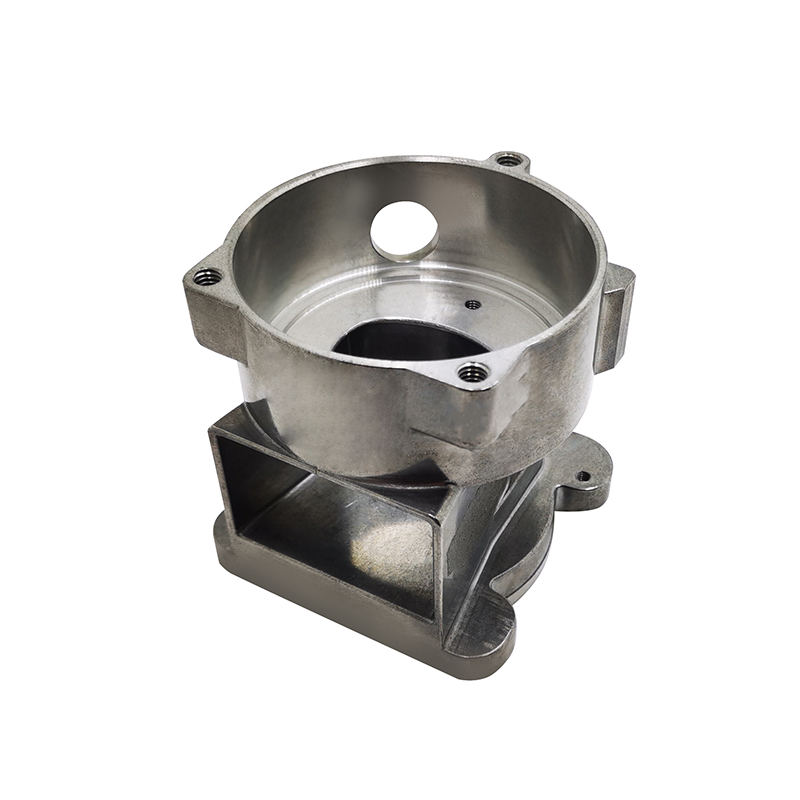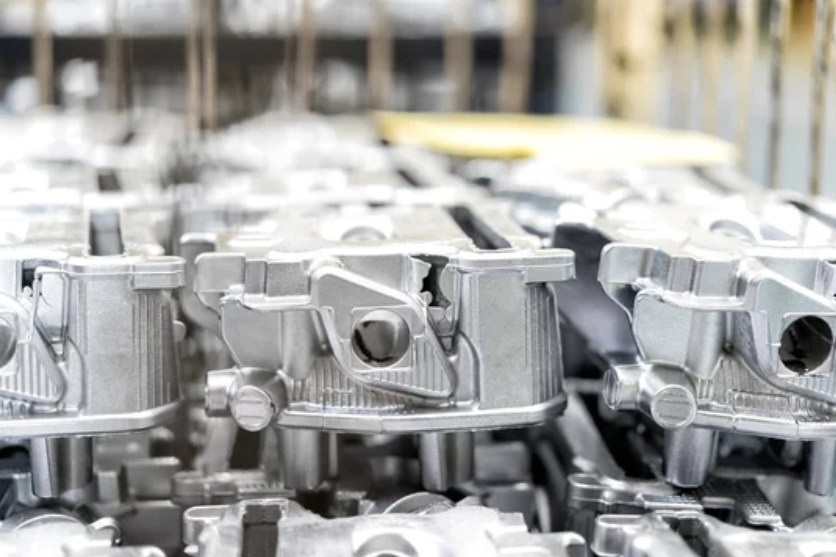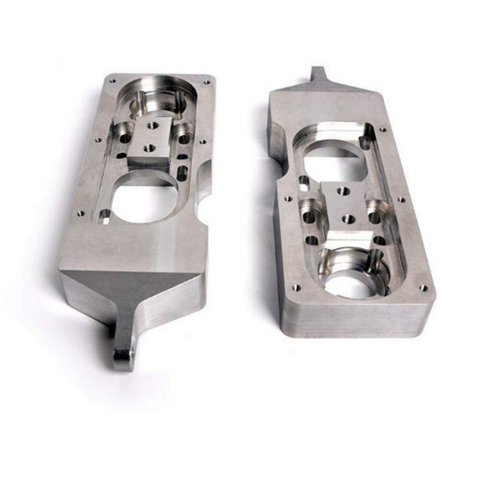The role of an Aluminum Foundry in industrial production processes
Checking Out the Ingenious Processes Behind Modern Light Weight Aluminum Factory Operations
Modern light weight aluminum foundry procedures are going through considerable improvement. Automation and AI are reshaping manufacturing techniques, boosting both performance and accuracy. The integration of 3D printing is improving mold production, while sustainability practices are coming to be much more important. Each of these advancements plays a key role in redefining the industry. The ramifications of these adjustments expand past simple production efficiency. What challenges and possibilities lie ahead for light weight aluminum shops in this developing landscape?
The Duty of Automation in Light Weight Aluminum Foundries

Additionally, automation contributes to boosted safety and security criteria within the shop setting. By moving unsafe jobs to makers, human employees can focus on supervisory roles and quality assurance, decreasing the risk of crashes. In enhancement, data analytics acquired from automated procedures supply useful understandings into functional performance, causing far better decision-making and continuous improvement. As the need for aluminum items expands, the fostering of automation innovations will likely increase, further changing the landscape of aluminum shop operations.
Improvements in Casting Technologies
Recent advancements in casting technologies are transforming aluminum factory procedures. Advancements such as 3D printing integration, advanced alloy solutions, and automated procedure optimization are enhancing effectiveness and product high quality. These growths are critical in satisfying the progressing demands of the industry.
3D Printing Combination
Incorporating 3D printing technology into light weight aluminum foundry procedures has reinvented conventional casting methods, improving both efficiency and accuracy. This ingenious strategy enables the quick production of complex mold and mildews and cores, considerably lowering lead times and material waste. By using additive manufacturing, foundries can create intricate geometries that were previously difficult or difficult to attain with traditional methods. The adaptability of 3D printing additionally allows fast style alterations, cultivating an extra dexterous manufacturing procedure. Additionally, this integration sustains using lightweight structures, which is significantly vital in sectors such as automotive and aerospace. As light weight aluminum factories remain to adopt 3D printing, they place themselves at the center of technical improvement, driving improvements in product top quality and functional abilities.
Advanced Alloy Formulations
The advancement of sophisticated alloy formulas has actually greatly boosted casting modern technologies in light weight aluminum shop operations. These formulations incorporate different elements, such as copper, magnesium, and silicon, to enhance mechanical residential properties and thermal resistance. By customizing the composition of light weight aluminum alloys, suppliers can accomplish specific efficiency qualities that meet the needs of diverse applications, from auto elements to aerospace frameworks. Using sophisticated alloys additionally adds to decreased weight and enhanced strength, which are essential consider modern-day engineering. Furthermore, advancements in alloy growth enable better fluidity throughout casting, causing enhanced surface area coatings and decreased flaws. On the whole, advanced alloy solutions represent a substantial leap onward, placing aluminum factories to meet the progressing demands of numerous industries efficiently.
Automated Refine Optimization
Developments in casting modern technologies have actually led the way for computerized process enhancement in aluminum foundry procedures. By integrating sophisticated software program and real-time information analytics, foundries can now enhance manufacturing procedures and improve quality control. Automated systems monitor variables such as pressure, temperature level, and air conditioning rates, enabling for instant changes that reduce flaws and waste. Furthermore, artificial intelligence formulas evaluate historical performance data to predict excellent settings, therefore increasing efficiency and minimizing cycle times. Robotics likewise play a substantial role, taking care of repeated tasks that enhance safety and security and accuracy. Generally, these innovations not just drive operational performance however additionally make it possible for shops to meet the expanding demand for high-grade light weight aluminum components in different sectors.
Smart Manufacturing and Industry 4.0 Combination
The assimilation of Smart Manufacturing and Industry 4.0 within aluminum factories is transforming operational effectiveness. By leveraging IoT technologies, automation, and robotics, foundries can enhance manufacturing processes and minimize downtime. Additionally, data analytics supplies essential understandings that enhance decision-making and drive continual improvement.
IoT in Shop Workflow
As manufacturers progressively embrace the Net of Things (IoT), foundry operations are experiencing a transformative shift towards clever manufacturing and Market 4.0 assimilation. Aluminum Casting Company. IoT innovations enable real-time information collection and evaluation, enhancing decision-making processes and functional efficiency. Sensors and connected devices check equipment performance, material usage, and ecological problems, enabling proactive upkeep and source optimization. This connection fosters a much more active manufacturing environment, where changes can be made quickly in feedback to market needs. Additionally, IoT facilitates enhanced traceability and quality assurance, as information from the whole production cycle can be conveniently accessed and examined. Overall, the combination of IoT in factory procedures significantly improves performance and drives advancement in Read More Here light weight aluminum production procedures
Automation and Robotics Assimilation
Automation and robotics integration is changing aluminum foundry operations by boosting performance and accuracy. This transformative strategy improves processes such as molding, putting, and completing, minimizing human mistake and raising output uniformity. By utilizing sophisticated robot systems, foundries can accomplish greater manufacturing prices while keeping rigorous top quality requirements. Automated systems likewise allow real-time monitoring and adaptive control, permitting quick modifications to production specifications. Furthermore, the integration of robotics decreases labor costs and minimizes safety risks connected with manual handling of molten steel. As shops welcome clever production principles fundamental in Industry 4.0, the harmony between automation and robotics solidifies their affordable edge, leading the way for sustainable development and technology in the aluminum casting market.
Information Analytics for Efficiency
Utilizing data analytics substantially improves effectiveness within light weight aluminum shop operations, aligning with wise production and Sector 4.0 principles. By leveraging real-time data collection and evaluation, factories can keep track of production processes, predict equipment failings, and optimize source allotment. This data-driven technique promotes insightful decision-making, allowing managers to determine bottlenecks and improve operations. Additionally, predictive analytics encourages factories to prepare for market needs, thereby lowering waste and making certain prompt item shipment. Integration of information analytics with IoT gadgets boosts functional exposure, cultivating an aggressive upkeep culture. Eventually, implementing these advanced analytical methods not only increases efficiency yet additionally drives development, positioning light weight aluminum foundries to meet the progressing demands of the industry while keeping one-upmanships in a rapidly altering landscape.
Sustainable Practices in Light Weight Aluminum Spreading
While the light weight aluminum spreading sector has actually generally encountered ecological difficulties, several foundries are currently adopting sustainable techniques to minimize their impact (Aluminum Casting Company). A significant focus has been on recycling aluminum scrap, which not only minimizes waste yet likewise conserves energy contrasted to main aluminum manufacturing. Ingenious melting modern technologies, such as induction heaters, boost power efficiency and reduced greenhouse gas emissions
Furthermore, factories are applying closed-loop water systems to decrease water usage and reduce thermal contamination. The usage of green binders in mold-making processes is obtaining grip, further decreasing hazardous emissions.
Some centers are spending in renewable power sources to power operations, straightening with international sustainability goals. By incorporating these practices, the aluminum casting sector is progressing towards an extra ecologically responsible future, showing that financial growth can exist side-by-side with ecological stewardship - Precision aluminum casting. These efforts reflect a commitment to sustainability and the importance of ecological responsibility in manufacturing
Quality Assurance Innovations
As the aluminum spreading sector breakthroughs towards sustainability, the importance of quality control technologies comes to be increasingly evident. Modern light weight aluminum shops are taking on innovative innovations to boost their quality control processes. Methods such as real-time tracking and information analytics permit manufacturers to detect flaws and incongruities early in the manufacturing cycle. Carrying out automated assessment systems outfitted with equipment discovering formulas warranties that items basics fulfill stringent quality criteria while reducing human mistake.
Furthermore, the combination of non-destructive testing methods, such as radiographic and ultrasonic examinations, gives much deeper insights into the honesty of spreadings without damaging the product. These innovations not only enhance product integrity however additionally lower waste, aligning with sustainability goals. Furthermore, the fostering of standard high quality frameworks aids simplify procedures throughout various foundries, guaranteeing uniformity in outcome. Collectively, these advancements are reshaping quality control, fostering a society of excellence within the aluminum casting market.
Future Fads in Light Weight Aluminum Factory Operations
What technologies lie in advance for aluminum shop procedures? The future of light weight aluminum shops is positioned for makeover through advancements in automation, synthetic intelligence, and sustainable methods. The assimilation of robotics and automated systems is anticipated to boost effectiveness and precision in the spreading processes, reducing human error and labor prices. Additionally, AI-driven analytics will allow real-time monitoring and anticipating upkeep, maximizing functional efficiency and minimizing downtime.
Sustainability continues to be a prime focus, with foundries increasingly taking on eco-friendly methods, such as making use of recycled aluminum and creating low-emission melting modern technologies. Technologies in 3D printing are additionally expected to transform mold-making, enabling complex geometries and reduced material waste. As the industry embraces digitalization, data-driven decision-making will certainly end up being pivotal, enabling foundries to respond promptly to market demands. Jointly, these patterns assure to redefine aluminum foundry procedures, making them more effective, sustainable, and adaptable to future obstacles.

Frequently Asked Inquiries
What Precaution Are Implemented in Aluminum Shop Workflow?
Aluminum foundry operations carry out various precaution, including individual protective equipment, ventilation systems to manage fumes, regular safety training, emergency reaction plans, and stringent tracking of temperature and devices to prevent mishaps and guarantee worker safety.
Just How Do Factories Manage Labor Force Training for New Technologies?

What Materials Are Commonly Recycled in Aluminum Foundries?
Light weight aluminum foundries frequently reuse scrap aluminum, including post-consumer products like drink containers, automobile parts, and construction materials. This recycling process minimizes waste and saves sources, adding to an extra sustainable aluminum production sector.
Exactly How Does Aluminum Casting Effect the Environment?
Light weight aluminum casting effects the setting through energy-intensive processes, greenhouse gas discharges, and potential regional air pollution. Nonetheless, advancements in reusing and lasting techniques can minimize these results, promoting a much more eco-friendly strategy to light weight aluminum production.
What Are the Typical Lead Times for Aluminum Spreading Projects?
Common lead times for light weight aluminum spreading jobs vary substantially, hop over to here generally varying from two to six weeks. Aspects affecting these timelines include intricacy, order size, and product availability, affecting general manufacturing routines in foundry operations.
Automation increasingly plays an essential function in light weight aluminum foundries, boosting performance and accuracy in the manufacturing procedure. Advancements in casting technologies have actually led the method for automatic process improvement in light weight aluminum foundry operations. Utilizing information analytics greatly improves effectiveness within aluminum foundry operations, lining up with wise manufacturing and Market 4.0 concepts. A substantial emphasis has actually been on reusing aluminum scrap, which not just reduces waste however also saves power compared to main light weight aluminum manufacturing. Aluminum foundries frequently recycle scrap aluminum, including post-consumer items like drink cans, vehicle parts, and building products.